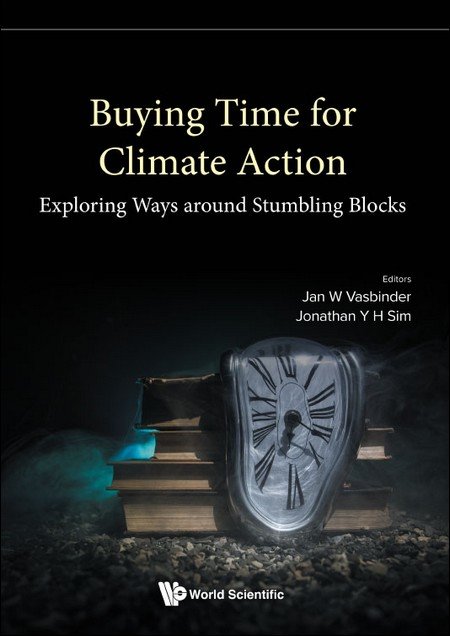System Upgrade on Tue, May 28th, 2024 at 2am (EDT)
Existing users will be able to log into the site and access content. However, E-commerce and registration of new users may not be available for up to 12 hours.For online purchase, please visit us again. Contact us at customercare@wspc.com for any enquiries.
The 2021 IPCC report made one thing crystal clear — global climate change is here to stay. Time is up. We need to act or climate change will lead to inconceivable suffering by billions of people.
Buying Time for Climate Action is the combined narrative of world class experts, all committed to help humanity survive its largely self-induced destructive course. Changing that course requires urgent action. Determining which actions will lead to helpful change requires insights into the stumbling blocks that always emerge when actions aimed at change are planned, resulting in lost time. The experts who contributed to this volume, through their expertise, networks, wisdom and creativity, have largely concluded that the way to cope with the stumbling blocks is to avoid them by focusing on grassroots initiatives. Their narratives and discussions, presented in this book, highlight such thinking.
The book is essential reading for anyone committed to help avoid an existential disaster for humanity, and ready to move plans into effective action.
Related Link(s)
- Press Release — The Mess from Global Climate Change: Overcoming the Stumbling Blocks for Effective Action
- A Conversation with Jonathan Sim, Co-editor of Buying Time for Climate Action: Exploring Ways around Stumbling Blocks
Sample Chapter(s)
1: Introduction
- About this Book:
- Introduction
- A Kaleidoscopic Wealth of Approaches
- Presentations:
- Existential Risks
- Food Systems and Their Sustainability: Buying Time
- Fisheries and Climate Change
- What are Emerging Infections Diseases?
- Climate-Induced Managed Retreat, a Multifaceted Action Plan
- Finance as Barrier to Addressing Systemic Climate Change
- Resilient Water Management
- Interlude:
- Heraclites, Lao Tzu, Change, Evolution and Stumbling Blocks
- The Nature of Stumbling Blocks
- Selected Discussion Highlights
- Exploring Ways Around Stumbling Blocks:
- Introduction to Section 2
- Decarbonization
- The Financial Conundrum
- Wildlife Management, Fish and Meat. What Worked and What Did Not
- Let a Thousand Flowers Bloom
- Conversion or Alignment
- Incentives
- Politicization
- Useful Models in Fishery, Conditions for Change
- Priorities for Change, Who/What is Going to Change the System?
- How People Make Decisions — Role of Experts
- Unblocking Blockages, Levers and Priorities, a Limited Inventory
- If You Could, What Single Thing Would You Change?
- Do We Need a Real Crisis?
- Issues Where We Could Realistically Hope to Make a Difference
- Agency and Transformative Action; Back Away from Pessimism
- Leadership — How Do We Become More Visionary?
- History and Agency
- Financing Prevention and Long-Term Planning
- Vested Interest — Absent Political Will/Nerve
- Linking Bottom-Up and Top-Down to Catalyze Action
- The Case of Managed Retreat
- Final Reflection
- Annex 1: Speakers, Invited Participants and Organizers




